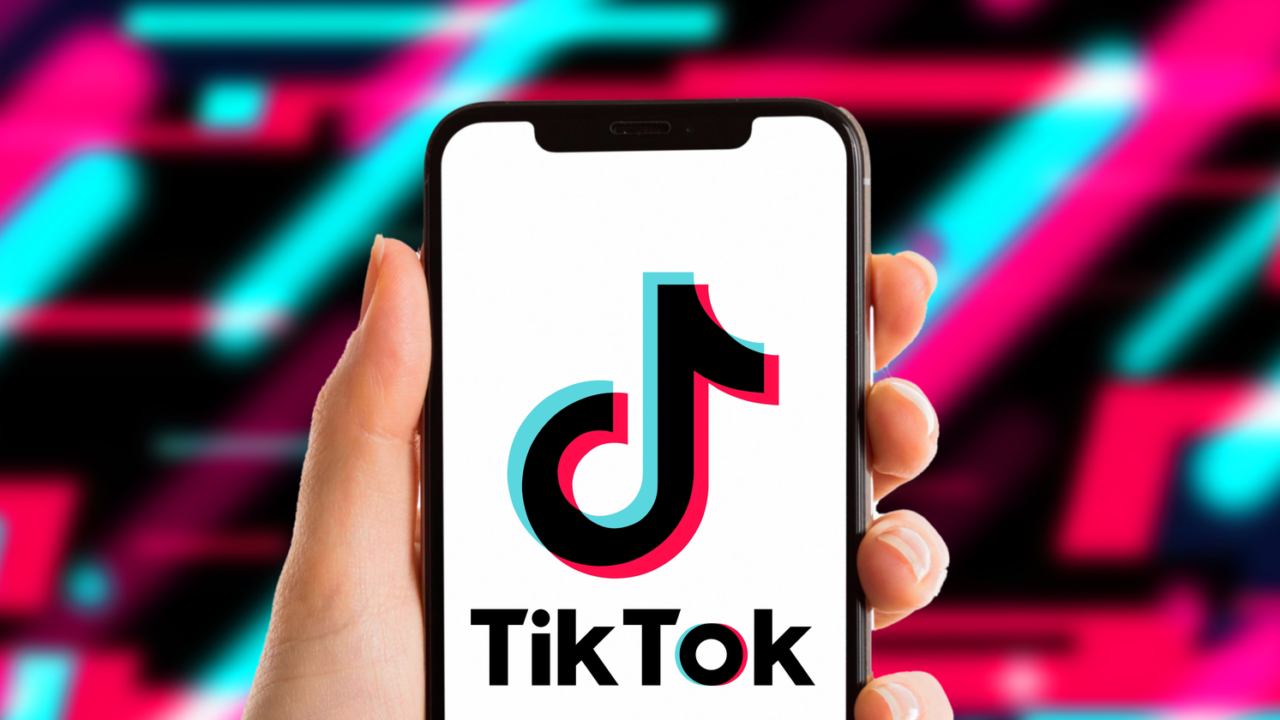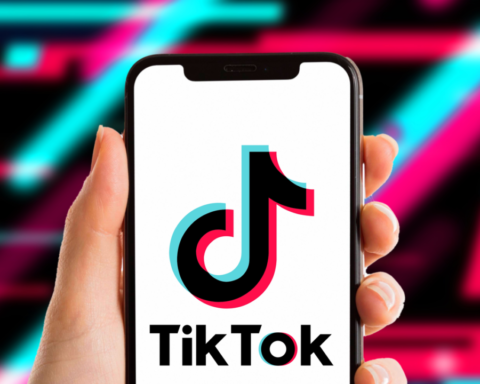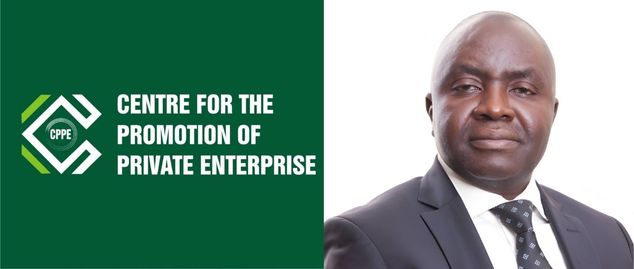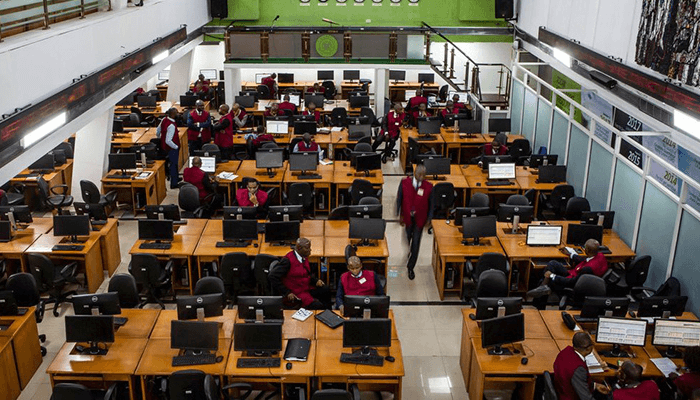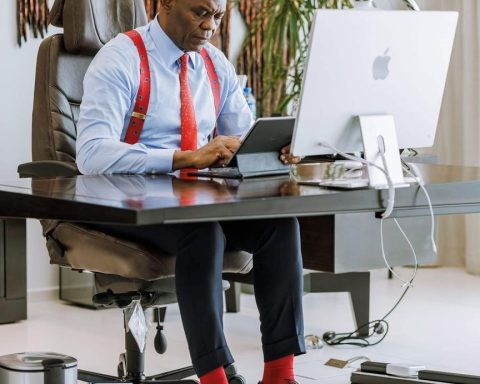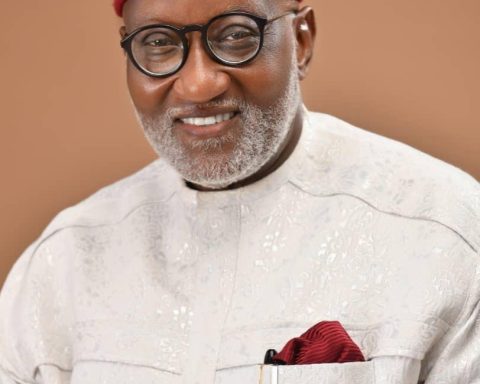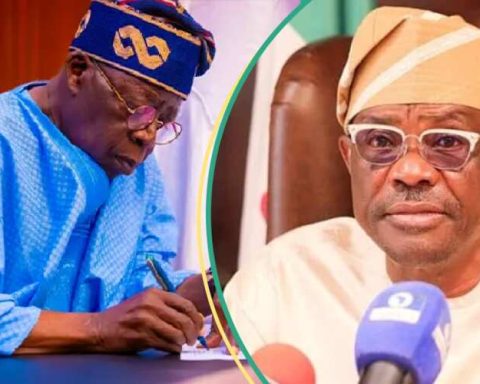Femi Falana, a senior Advocate of Nigeria and Nigeria’s leading human rights speaker said he wanted to institute with the law enforcement agency (NPF, police), a criminal complaint about alleged defamation of his character made by a social media personality: Very Dark Man, over a phone conversation in which it was alleged that a certain Bobrisky (a transgender) alleged that the legal luminary charged a professional fee to get her a presidential pardon following her short imprisonment by the court for money laundering as filed by the Economic and Financial Crimes Commission.
But the senior lawyer then said, he has changed his mind and has decided to pursue a civil litigation process to get the court to clear his name over the false allegations made by the duo aforementioned. He said his reason is that, he is championing a regional wide advocacy campaigns to get West African nations to decriminalised freedom of speech.
Femi Falana’s position, and indeed his current issue of scandalisation of his highly respected image and personality in Nigeria, reminds me of how powerful the social media is.
For the mere fact that Nigeria’s easily number one human rights defender, is wounded by a post on social media and has decided to seek redress, demonstrates the powers and influences of the social media on the minds, hearts and brains of Nigeria’s growing populations or rather Children.
READ ALSO: VDM Blows Hot Over Bobrisky Absence At Probe, Apologises To Falana
The truth is that the social media is unleashing devastating moral dangers on our growing children whose brains are just developing and evolving and since their minds, brains and faculties are only just evolving (tabula rasa: empty slate), the social media contents that they access in the absence of strict controls, regulations and checks by their parents or government, have the potential of destroying their upbringing and building them up into immoral gangsters.
And once the young minds, brains and faculties of thinking, conception, perception, are completely evolved and developed, it is difficult to disentangle and dis-abuse, free, liberate, clean up or cleanse such moral cobwebs that have become a part of the children brainwashed by the immoral, criminal social media contents.
What I set out in this article to do is to raise the alarm that the Nigerian government has the responsibility much more than even the individual parents, to use the powers of the state, to get the owners of social media platforms who are mostly foreigners from the Western and Eastern developed countries, to compellingly stop children from accessing harmful social media contents.
The USA is taking several steps to do this so why not Nigeria? I will come back to what the United States of America is doing to achieve this. But first, I want to say that the owners of the social media platforms ought to be aware of the necessity of them adopting in-house checks and balances to filter out the harmful contents so Nigerian, African and World’s children aren’t polluted by having unhindered access to immoral social media contents. This in-house self regulation is called social responsibility theory of the media.
READ ALSO: How Social Media Poses Threat To Mental Health
Communication theorists wrote in www.communicationtheory.org that ‘Social Responsibility Theory’ allows free press without any censorship but at the same time the content of the press should be discussed in public panel and media should accept any obligation from public interference or professional self regulations or both.
The theory lies between both authoritarian theory and libertarian theory because it gives total media freedom in one hand but the external controls in other hand. Here, the press ownership is private. The social responsibility theory moves beyond the simple “Objective” reporting (facts reporting) to “Interpretative” reporting (investigative reporting).
The total news is complete facts and truthful but the commission of the freedom press stated that “No longer giving facts truthfully rather than give a necessary analysed or interpretative report on facts with clear explanations”.
The theory helped in creating professionalism in media by setting up a high level of accuracy, truth, and information. The commission of press council also included some tasks based on social responsibility of media, which are as follows:
Formulate the code of conduct for the press.
Improve the standards of journalism.
Safeguarding the interests of journalism and journalist.
Criticise and make some penalty for violating the code of conduct.
The theory allows:
Everyone to say something or express their opinion about the media.
Community opinion, Consumer action and professional ethics.
Serious invasion of recognized private rights and vital social interests.
Private ownership in media may give better public service unless government has to take over to assure the public to provide better media service, they argued.
Media must take care of social responsibility and if they do not, government or other organisation will do.
Critics of Social Responsibility Theory
avoid the conflict situation during war or emergency by accepting the public opinion.
Media will not play monopoly because the audience and media scholars will raise questions if media published or broadcast anything wrongly or manipulate any story.
Media Standards will improve.
Media will concern all class audience rather than focus on higher classes in the society.
Media may work autonomously but certain thing is controlled by the government and other public organisation, these social communications theorists cited above concluded.
They are correct and I buy into their idea and therefore call on the Nigerian authority to stop searching for how to control political posts on social media with the aim of instituting a tyranny in Nigeria.
What the government should focus on is to ensure that the moral fabrics of the young Nigerians are not corrupted by social media platforms and especially the Chinese owned Tiktok.
The United States of America has taken action.
More than a dozen states and the District of Columbia filed lawsuits against TikTok on Tuesday, saying that the popular short-form video app is designed to be addictive to kids and harms their mental health.
The lawsuits stem from a national investigation into TikTok, which was launched in March 2022 by a bipartisan coalition of attorneys general from many states, including New York, California, Kentucky and New Jersey. All of the complaints were filed in state courts.
At the heart of each lawsuit is the TikTok algorithm, which powers what users see on the platform by populating the app’s main “For You” feed with content tailored to people’s interests. The lawsuits note TikTok design features that they say addict children to the platform, such as the ability to scroll endlessly through content, push notifications that come with built-in “buzzes” and face filters that create unattainable appearances for users.
“They’ve chosen profit over the health and safety, well-being and future of our children,” California Attorney General Rob Bonta said at a news conference in San Francisco. “And that is not something we can accept. So we’ve sued.”
The latest lawsuits come nearly a year after dozens of states sued Instagram parent Meta Platforms Inc. in state and federal courts for harming young people and contributing to the youth mental health crisis by knowingly and deliberately designing addictive features that keep kids hooked on their platforms.
Keeping people on the platform is “how they generate massive ad revenue,” District of Columbia Attorney General Brian Schwalb said in an interview. “But unfortunately, that’s also how they generate adverse mental health impacts on the users.”
The legal challenges, which also include Google’s YouTube, are part of a growing reckoning against social media companies and their effects on young people’s lives. In some cases, the challenges have been coordinated in a way that resembles how states previously organized against the tobacco and pharmaceutical industries.
TikTok, though, is facing an even bigger obstacle, as its very existence in the U.S. is in question. Under a federal law that took effect earlier this year, TikTok could be banned from the U.S. by mid-January if its China-based parent company, ByteDance, doesn’t sell the platform by then. Both TikTok and ByteDance are challenging the law at an appeals court in Washington. A panel of three judges heard oral arguments in the case last month and are expected to issue a ruling, which could be appealed to the U.S. Supreme Court.
In its filings Tuesday, the District of Columbia called the algorithm “dopamine-inducing,” and said it was created to be intentionally addictive so the company could trap many young users into excessive use and keep them on its app for hours on end. TikTok does this despite knowing that these behaviors will lead to profound psychological and physiological harms, such as anxiety, depression, body dysmorphia and other long-lasting problems, the district said.
TikTok is disappointed that the lawsuits were filed after the company had been working with the attorneys general for two years on addressing to the issues, a spokesman said.
“We strongly disagree with these claims, many of which we believe to be inaccurate and misleading,” the TikTok spokesman. Alex Haurek, said. “We’re proud of and remain deeply committed to the work we’ve done to protect teens and we will continue to update and improve our product.”
The social media company does not allow children under 13 to sign up for its main service and restricts some content for everyone under 18. But Washington and several other states said in their filings that children can easily bypass those restrictions, allowing them to access the service adults use despite the company’s claims that its platform is safe for children.
The District of Columbia alleges TikTok is operating as an “unlicensed virtual economy” by allowing people to purchase TikTok Coins – a virtual currency within the platform – and send “Gifts” to streamers on TikTok LIVE who can cash it out for real money. TikTok takes a 50% commission on these financial transactions but hasn’t registered as a money transmitter with the U.S. Treasury Department or authorities in the district, according to the complaint.
Officials say teens are frequently exploited for sexually explicit content through TikTok’s LIVE streaming feature, which has allowed the app to operate essentially as a “virtual strip club” without any age restrictions. They say the cut the company gets from the financial transactions allows it to profit from exploitation.
The 14 attorneys general say the goal of their lawsuits is to stop TikTok from using these features, impose financial penalties for their alleged illegal practices and collect damages for users that have been harmed.
The use of social media among teens is nearly universal in the U.S. and many other parts of the world. Almost all teens ages 13 to 17 in the U.S. report using a social media platform, with about a third saying they use social media “almost constantly,” according to the Pew Research Center.
High school students who frequently use social media more commonly have persistent feelings of sadness or hopelessness, according to a new survey from the Centers for Disease Control and Prevention conducted last year in which about 20,000 teenagers participated.
Also on Tuesday, 22 other states including Alabama, Colorado, Florida and Michigan filed an amicus brief urging a Tennessee court to force TikTok to produce documents related to a multistate investigation that those attorney general offices say TikTok is withholding or destroying.
When TikTok failed to produce the requested information last year, 46 states including Minnesota filed an amicus brief in support of Tennessee. The amicus brief they filed Tuesday supports Tennessee’s continued efforts to compel TikTok’s compliance.
Last week, Texas Attorney General Ken Paxton sued TikTok, alleging the company was sharing and selling minors’ personal information in violation of a new state law that prohibits these practices. TikTok, which disputes the allegations, is also fighting against a similar data-oriented federal lawsuit filed in August by the Department of Justice.
Several Republican-led states, including Nebraska, Kansas, New Hampshire, Kansas, Iowa and Arkansas, also previously sued the company, some unsuccessfully, over allegations it is harming children’s mental health, exposing them to “inappropriate” content or allowing young people to be sexually exploited on its platform.
I call on the ministers of justice, information and national orientation and education, to jointly come up with regulatory frameworks focused on stopping the MORAL CORRUPTION OF YOUNG MINDS IN NIGERIA BY SOCIAL MEDIA PLATFORMS AND ESPECIALLY TIKTOK.
On March 27th 2020, a piece by Jonathan Sack titled “There Can Be No Freedom without Morality” examined the change in attitude toward morality in the West over the past century, and passed a verdict that he could see the collapse of the principles on which liberal societies are built.
He wrote thus: “Morality achieves something almost miraculous, and fundamental to human achievement and liberty. It creates trust. It means that, to the extent that we belong to the same moral community, we can work together without constantly being on guard against violence, betrayal, exploitation, or deception. The stronger the bonds of community, the more powerful the force of trust, and the more we can achieve together.
Morality is essential to freedom. That is what John Locke meant when he contrasted liberty, the freedom to do what we ought, to license, the freedom to do what we want. It is what Adam Smith signaled when, before he wrote The Wealth of Nations, he wrote The Theory of Moral Sentiments. It is what George Washington meant when he said, “Human rights can only be assured among a virtuous people.” And Benjamin Franklin, when he said, “Only a virtuous people are capable of freedom.” Or Thomas Jefferson, when he said, “A nation as a society forms a moral person, and every member of it is personally responsible for his society.” Lose morality, and eventually you will lose liberty.
When I went as an undergraduate to Cambridge University in the late 1960s, the philosophy course was called Moral Sciences, meaning that, just like the natural sciences, morality was objective, real, part of the external world. I soon discovered, though, that almost no one believed this anymore. Morality was held to be no more than the expression of emotion, or subjective feeling, or private intuition, or autonomous choice. It is whatever I choose it to be. To me, this seemed less like civilization than the breakdown of a civilization.
As for the consequences of our choices, these have been outsourced to the state. Bad choices lead to bad outcomes: failed relationships, neglected children, depressive illness, wasted lives. But the government would deal with it. Marriage was no longer needed as a sacred bond between husband and wife. . . . Welfare was outsourced to government agencies, so there was less need for community volunteering. As for conscience, which once played so large a part in the moral life, that could be outsourced to regulatory bodies”.
So, I support social media regulations from the point of view of morality but I don’t subscribe to social media control by government to create a dictatorship of the strongman in nigeria.
Emmanuel Onwubiko is head of the Human Rights Writers Association OF NIGERIA and was National Commissioner of the National Human Rights Commission of Nigeria.


